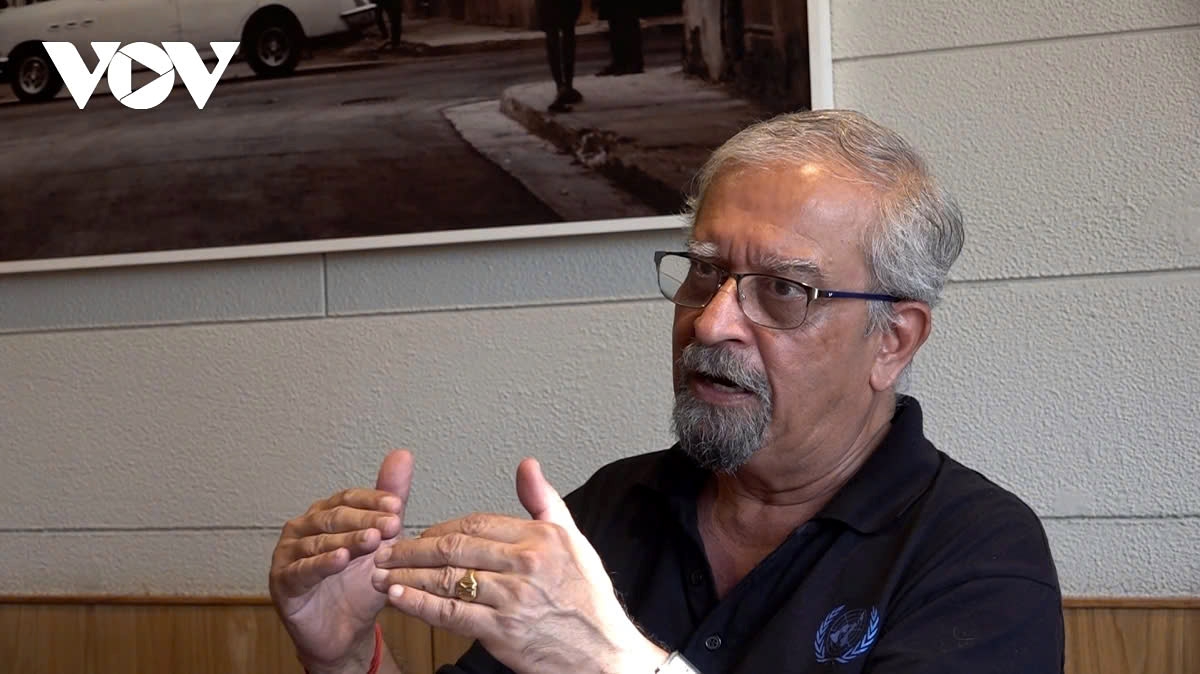Vietnam needs Renovation 2.0 with more robust and comprehensive changes
VOV.VN - Vietnam should initiate Renovation 2.0 to include more robust and comprehensive changes, after recording significant achievements over the past 40 years of implementing Renovation 1.0 in order to propel itself towards sustainable development and a more prominent role in the global economy, suggested Kamal Malhotra, former UN Resident Coordinator in Vietnam.

Malhotra, who has acquired a wealth of experience in Vietnam’s development and transformation for more than 30 years, told New Delhi - based VOV correspondents in a recent interview that the country is at a crucial threshold for elevating its self-driven development.
He noted that there has been a significant changes made in Vietnam since 1986 when the Doi Moi (Renovation) process began. The country has transformed rapidly from a low starting point caused by the devastation of war to that of a developing economy at present.
Its annual GDP per capita has increased significantly from just US$200 - 300 in the mid-1980s to around US$4,000 at present. But to achieve the minimum threshold of a high-income economy as calculated by the World Bank, he said that GDP per capita must reach at least US$14,000 by 2045, and this will be a very challenging task.
Vietnam must also be cautious not to fall into the low middle-income trap, and this is a real risk for the country in the current context, he warned.
In his view, artificial intelligence will, on one hand, generate new opportunities, but on the other hand present various economic and political challenges to Vietnam over the coming years. Therefore, this year sees the country stands at a critical crossroads, reminiscent of the renovation period in 1986, as well as the years 1945, 1954, and 1975.
The former UNDP official appreciated late Party General Secretary Nguyen Phu Trong’s role and contributions to the country’s development, saying that the late leader has been the most prominent Marxist-Leninist theorist in Vietnam over the past three decades, whilst he became well-known for his ‘Bamboo Diplomacy’ policy.
Building on and realising his legacies is therefore something that the country is advancing in the context of a dramatically changing geopolitical landscape in the 21st century, he said, adding that to do this, it needs Renovation 2.0 to achieve a more robust development compared to the original Renovation 1.0 in 1986, which primarily focused on economic reforms.
According to the official, Renovation 2.0 should emphasise a long-term economic strategy that allows the country to grow more vigorously. It should therefore seek to implement more robust and comprehensive reforms, such as overhauling the judicial system, investing in human capital, and nurturing new generations of leaders capable of guiding Vietnam in all aspects.
These changes can be viewed as essential for enhancing governance, fostering greater innovation, whilst ensuring sustainable development in the face of global challenges. By focusing on leadership development and the rule of law, the country can better position itself for future growth and stability, he stated.
Vietnam should learn from experiences of several countries and territories such as the Republic of Korea and Taiwan (China) to avoid falling into the middle-income trap, he suggested.
The RoK, for instance, faced numerous challenges throughout the 1960s and 1970s as it strived to avoid falling into the middle-income trap, with solutions aimed at addressing social issues and investing in education. Meanwhile, Taiwan (China) was one of the few to successfully escape both the low- and middle-income traps by developing small and medium-sized enterprises.
Reminding that countries like the Philippines, Thailand, Indonesia, and Malaysia are struggling with these issues, the official affirmed that Vietnam has reaped great successes in terms of socio-economic development, especially in poverty reduction and education-training. It therefore has a real opportunity to escape the middle-income trap, but this requires significant effort, technocratic expertise, and world-class economists.


